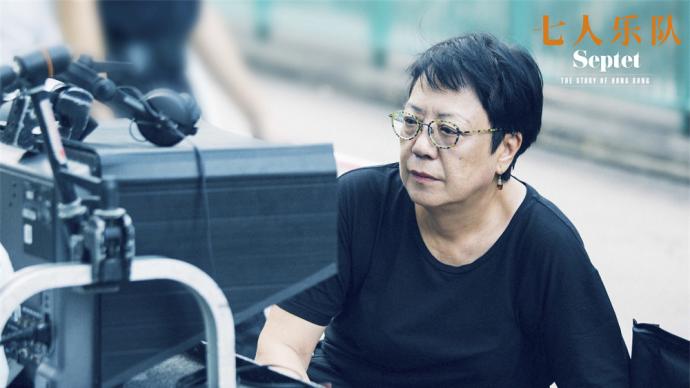
In "Make Movies Well", Xiao Fangfang commented on Xu Anhua and said, "Ann is to find a balance between gods and dogs." As a director, sometimes she is "god", sometimes she is "dog". This time, when filming "The Band of Seven", Xu Anhua said that it was "being a man". First, her comrades-in-arms and her contemporaries in this film have their own magical powers. She is not the only high authority and legend, she doesn't have to be a "god"; secondly, with Du Qifeng and Du Sir being escorted, she just needs to let go To realize your own ideas, you don't have to bear any box office pressure for light creations, and naturally you don't have to be a "dog". For Xu Anhua, such a moment is "a rare thing to be thankful for". 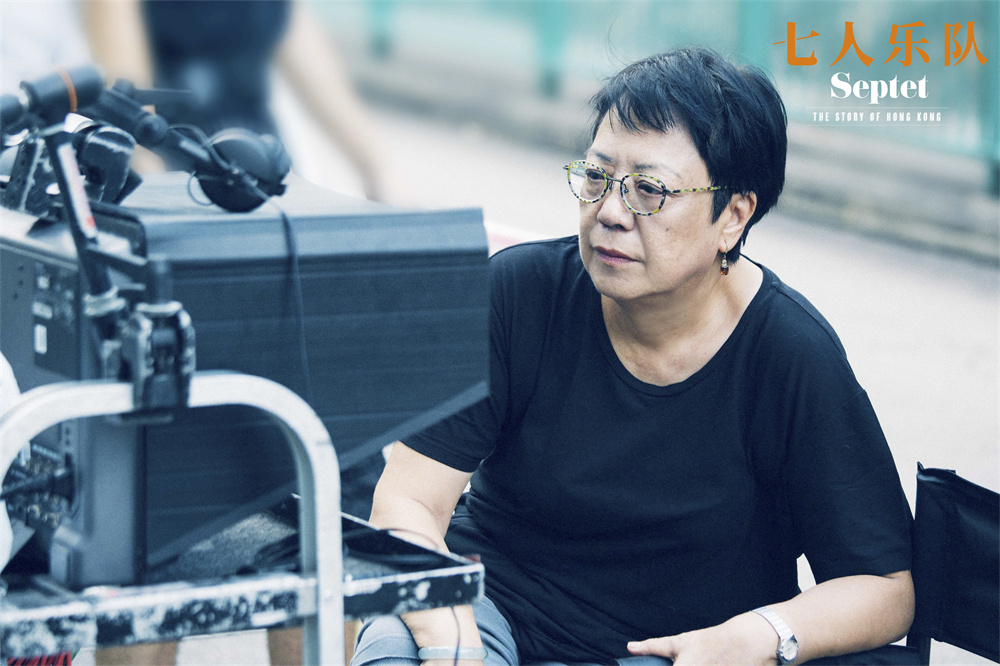
An interesting creative background is that after the format of writing Hong Kong in a small chapter every ten years was determined, these masters who were already able to make movies at their fingertips decided their respective topics by drawing lots. Xu Anhua was drawn to the 1960s. Her first reaction was to be very happy, because it was the period when she wanted to shoot the most. In the past ten years, Xu Anhua's youthful years, when Xu Anhua began to form a cognition of the world, also happened to be an era when she never touched much in filming.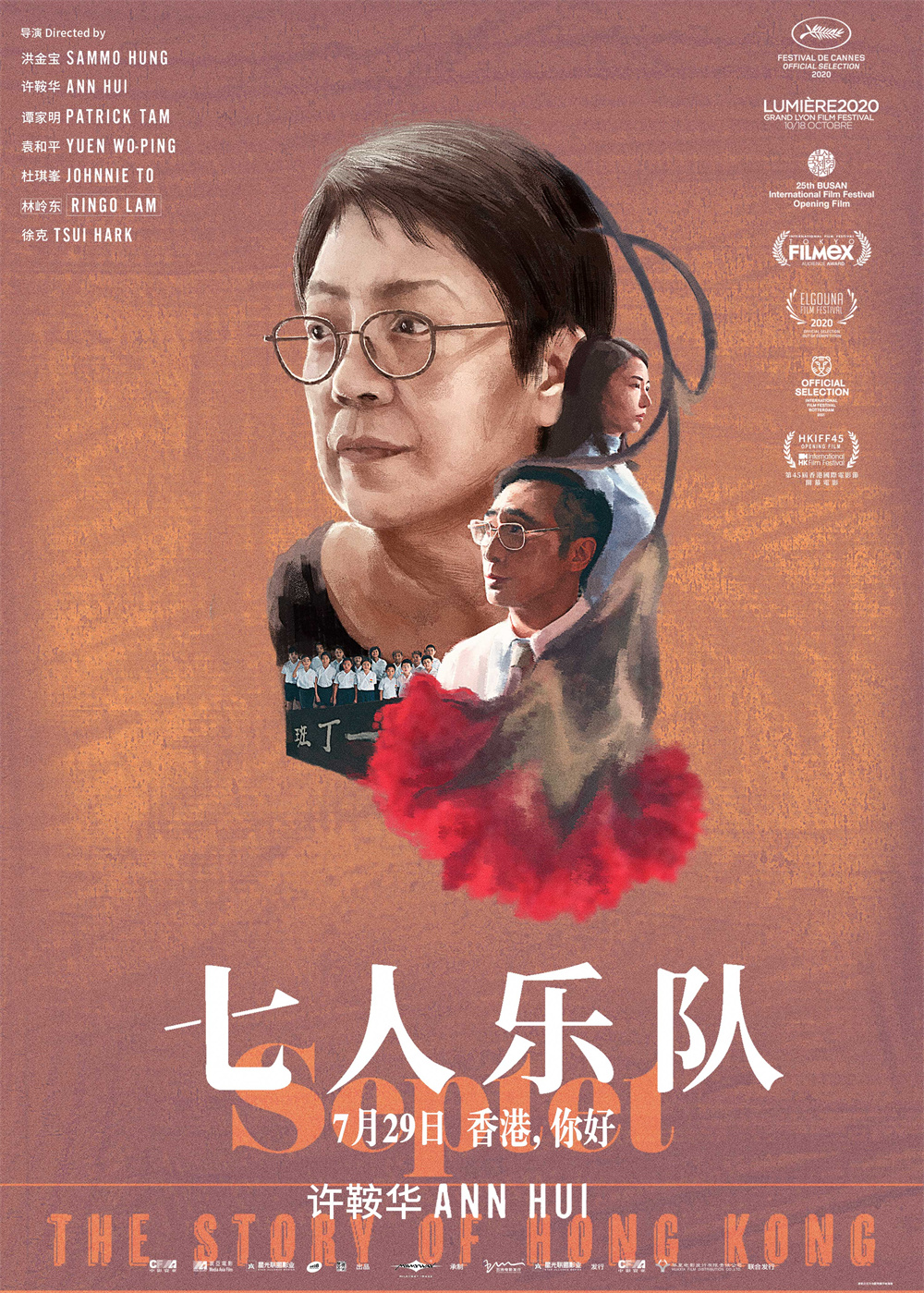
The short film conveys the power of "Tian Shui Wai" to convey the fireworks atmosphere of market life and the meticulous warmth between people. The dark tide surging, all in the yellow tone, leaving a faint and sad aftertaste.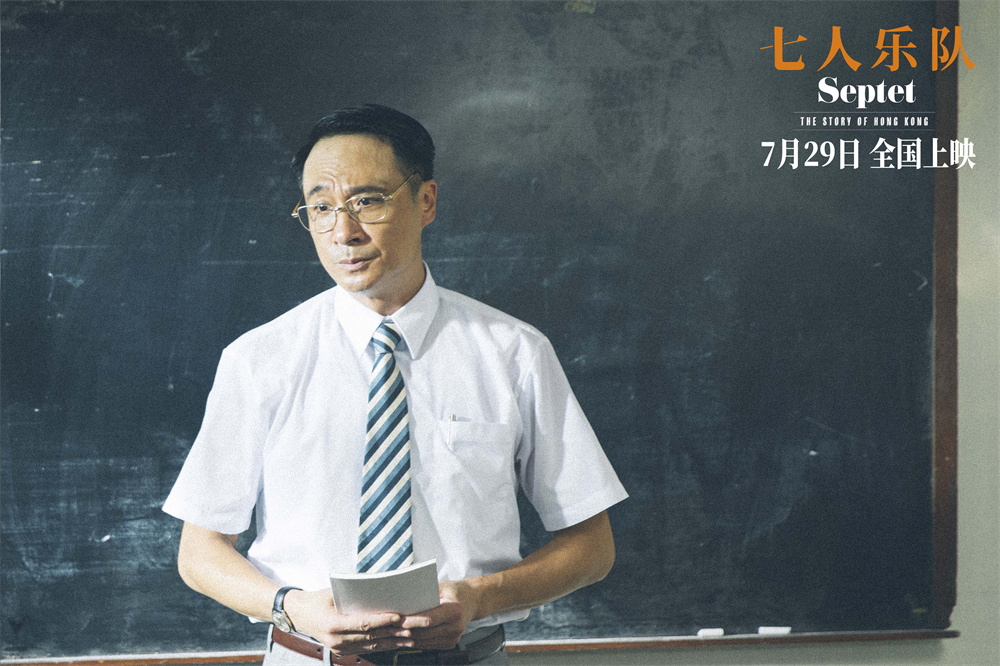
At the beginning of "The Principal", Xu Anhua said, "In the past, I didn't have much affection for the short-lived four words." At the end, the director gave a calm attitude, "Generation after generation, it exists like this." The short film records the principal. Looking back on the time of a lifetime, the stories of the seven directors are arranged together, and they also converge into a gaze at the golden age of Hong Kong cinema.
During the interview, when asked what Xu Anhua thought about the filmmakers of their generation and the ups and downs they were in, she only said that the people who were in them couldn't see clearly, such as the golden age that people said, because she made art films and even included the main creative team. It didn't go well, so the impression of it was not so good. Of course, I can't help but miss the past, but it may be that I can't keep up with my physical strength when I am old, so I am "angry with myself" because of this inability. Movies are always developing, and each generation of directors has their own lessons. "I hope the new generation of filmmakers can give me some opportunities to learn from them."
The following is director Hui Anhua's self-report, about her 1960s, and affection for Hong Kong cinema.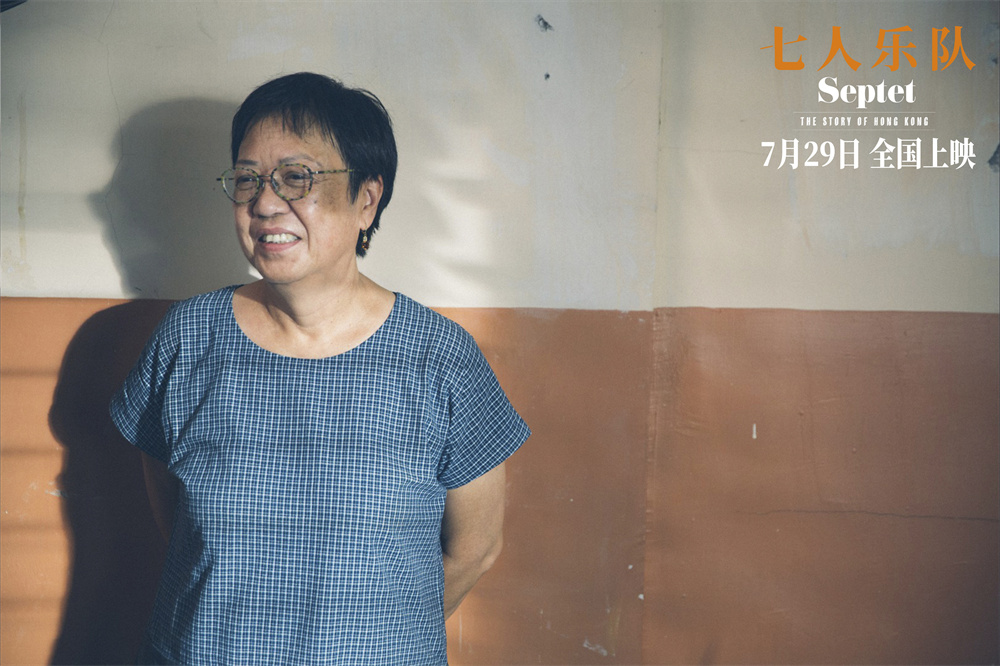
Simple Hong Kong, a model student who steals cookies
Several of our directors decided to shoot the era of Hong Kong by casting lots. After the lottery, my first reaction was to be very happy, because I just wanted to shoot the 1960s. That time was my teenage adolescence, the age of enlightenment in my entire life. Many understandings of the world were formed during that period, and I was impressed. This may be the natural attraction of that era to me.
I remember that Hong Kong at that time was still a very simple city. At that time, I used to walk to and from school. As soon as I walked through the North Point, there were sea and boats next to it, and there were no buildings. In the morning, there were many bus drivers eating bread there. At that time, Hong Kong was generally relatively empty, and there were many places where the sea could be seen, but all of them were filled later.
I went to a church school, and I was a little bored. I always remembered going to church, and I would gather and recite the scriptures at every turn. I remember that there will be another year of retreat training, to be alone for two or three days, not allowed to speak. At the time, I thought these were drudgery, but now I think about it a lot like the meditation that people admire today.
At that time in the mission school, I had hardly been to Kowloon, and I didn't know many things about Hong Kong society. But because of this, the feeling of life at that time was very single and profound. It's a very hot summer, wearing school uniforms, bouncing around on the playground... It won't be like it is now, with many cultures, many times mixed together, plus the chaos on the Internet...
Now that I think about it, I think that kind of quietness is necessary, and it is also necessary to do things that you don't like to do, because you will train yourself to accept a lot of tests. I didn't know it at the time, I thought it was unnecessary suffering, but now that I think about it, it turns out to be precious.
I read very well, and I was considered a model student in the eyes of the teacher, but in fact, I would secretly rebel against the teacher behind my back. Maybe the teacher was watching me on the podium seriously in class, he turned his back and I secretly ate biscuits under the drawer.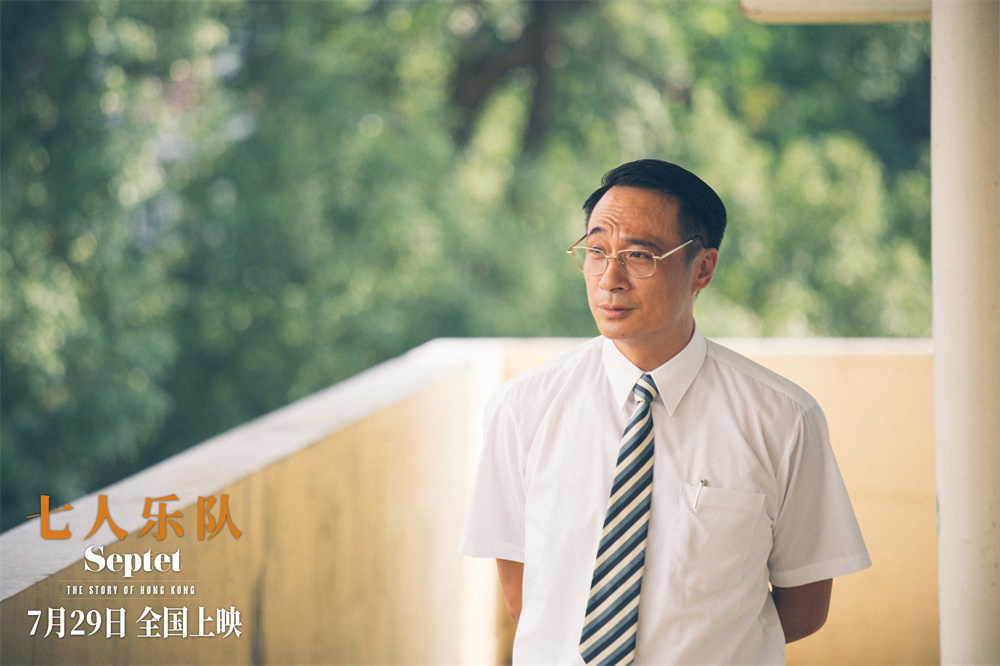
In the short film, I photographed Epiphyllum and some other flowers and plants and put them in it. In fact, I want to say that these ordinary people, no one knows their life or death, but they all live with dignity and value.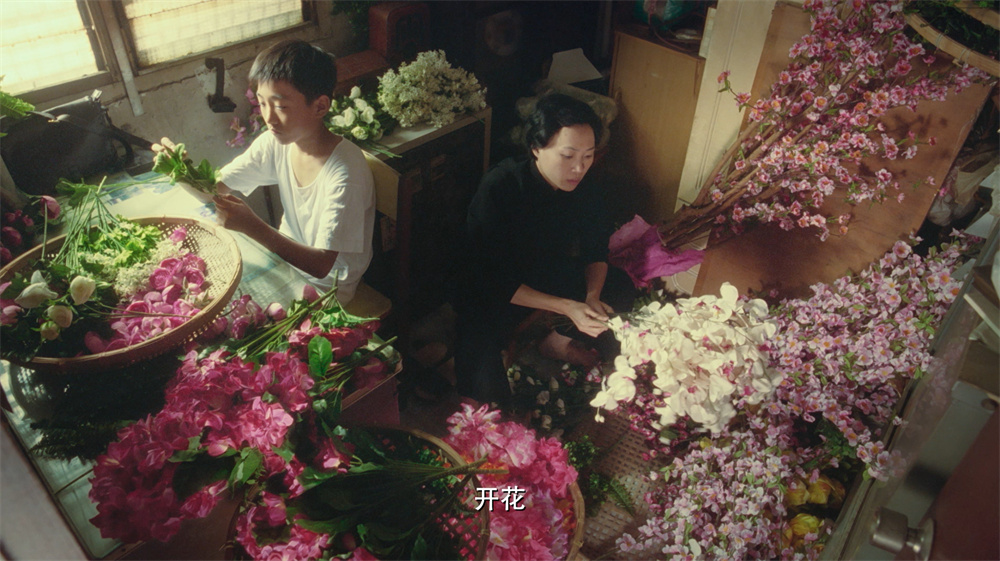
The screenwriter wrote about a few dinner scenes. In those days, the "work meal" was not a lunch box. There was a servant in the school who cooked for the teachers. Everyone gathered to eat together. There were many companies and people who delivered meals. , Everyone sits around and eats vegetables. This is very different from the feeling of eating a box lunch in today's business society, especially like a family. This is also one of my memories of the 1960s.
The lost film, the "pot" that unloads the burden
John To initially asked me to make a film commemorating film (ie film), and I said yes, yes. The topic of Hong Kong was discussed further later. I think back now, the last film made with film was "Jade Guanyin" in 2003. Think it's almost 20 years now.
We were doing it separately. I shot early, in 2014, when film was hard to come by. Some producers have to go to Southeast Asia to find the film and the remaining one or two old machines, and then everything is different, and the lighting is different. Fortunately, the editing was done after "passing the tape" (turning the numbers), otherwise it would be difficult to find a machine for editing, and I guess it will be even more difficult to find this year.
Many directors miss the texture of film, but I don't. Shooting digitally from the very beginning, I really like the texture of it. Because it is so convenient, you can keep shooting without stopping. Over the years, I've been a little "spoiled" by this kind of convenient shooting, and I'm not even used to halfway through the shooting of my assistant director yelling, "Director, there's no film left", because it will stop in ten minutes. It's cheap and expensive, and it distracts me while filming, and the assistant director is annoying. But in the past, we scored shots on film and did it very carefully, which might have forced the director to think about a scene earlier. But shooting them separately makes it easier for the actors' performances to be less coherent. It's a different creative mindset, but I still think the benefits of digital are more.
For me, the more interesting thing is that everyone can make a movie together. Such opportunities are rare.
Although the film is expensive, John To, as a producer, didn't put any pressure on me, just let us do it. What's even better is that with the seven directors together this time, there will be no pressure to "take the blame alone" after the release. As long as the film is finished well, there is no need to worry about the rest.
At least as a director myself, my past experience has always been that after the filming, I have to bear the pressure of public opinion and box office revenue. This is a bad influence. It will make you look forward and backward when filming, and you are afraid of what will happen. Now it is equivalent to having a scene where you just work hard to finish the filming, so you feel very comfortable while filming. I'm very grateful to have the opportunity to make a drama like this, it's so rare.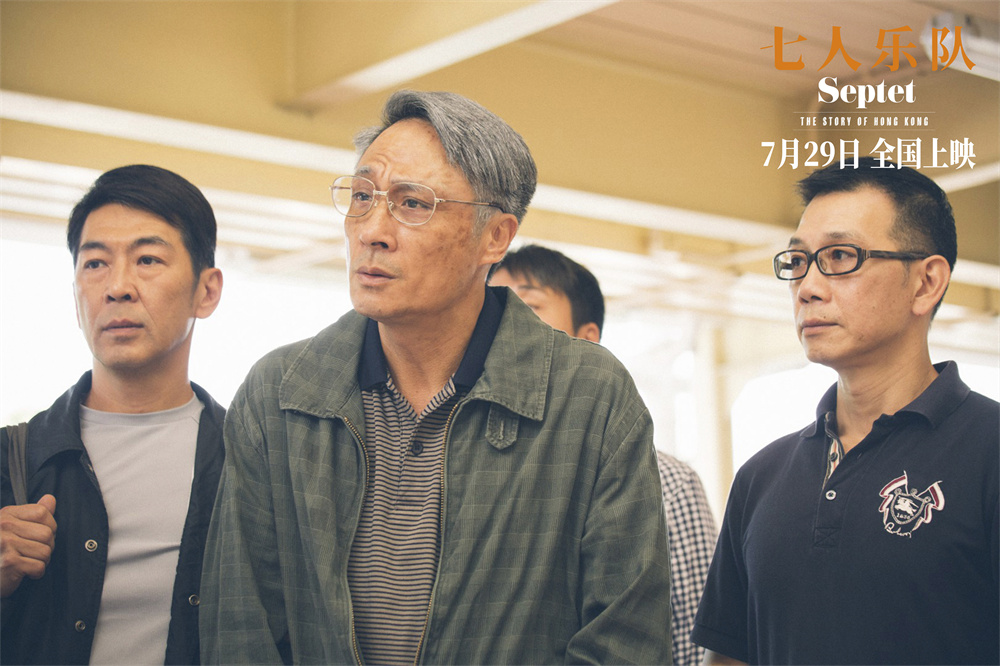
Although he "runs with him" at the recent Academy Awards, the recognition of his acting skills no longer requires an Academy Award. Unless he has no job, an Academy Award can help him and let him take on more shows. . He has a lot of work, so the awards really don't matter that much, and all the industry audiences recognize him very much.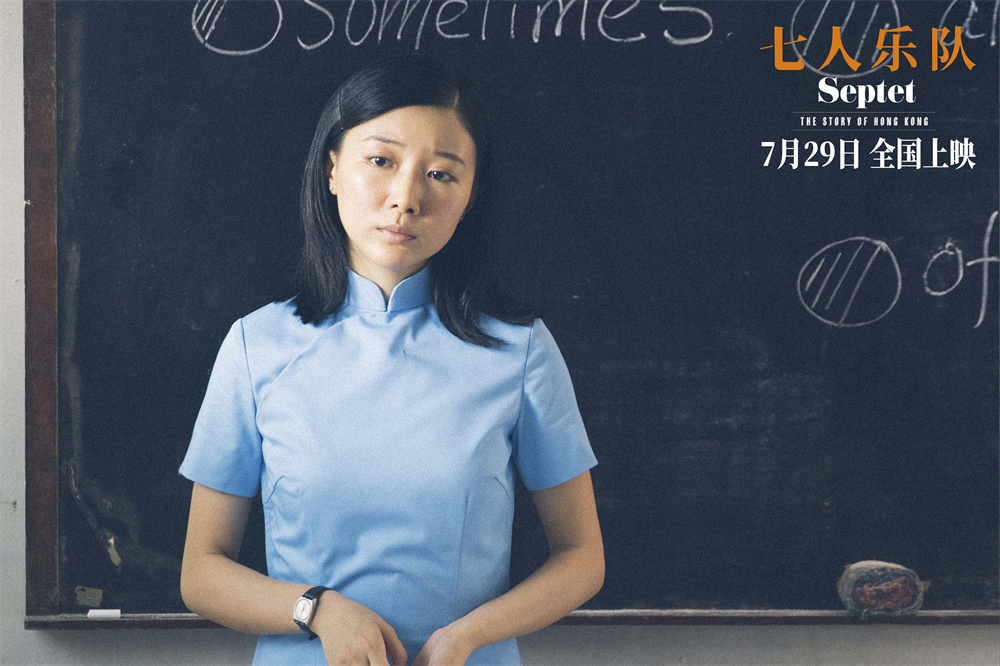
Hong Kong movies have come through era after era, and they have changed a lot, and I am part of that change. A lot of people ask me this question of looking back on 70 years, but I haven't really thought about it.
We have been experiencing such a big issue of the times ourselves, and it is often difficult to know a so-called historical status or evaluation. I like to experience and experience each play one by one. To be honest, I have no interest in historical evaluation and historical status. What if people say that I am the best director in the past few decades? What if you say I'm the worst director? In short, I think that as long as you can work hard to get opportunities and do the work you like, this is the most important. Although there are trendy things in the development of time, I don't think this has much to do with the basic experience of all of us who create.
Many voices are saying that they miss the golden age of Hong Kong movies. In fact, from the end of the 1980s to the 1997s, for nearly ten years, the most golden time of Hong Kong movies was the most unlucky time for me. I was the least fit for that "golden age". At that time, a director had to make at least two films a year, like Wang Jing, they had to make five films, and the income was very good in all aspects. But I may not even be able to find a film crew, everyone is too busy, a crew may have to serve seven scenes, and the actors are filming several scenes at the same time. I'm very unhappy, but I can't tell others not to do it, dare not speak out, but the situation is like this, you can only accept and adapt. So what happened at the time was that I wasn't very happy and I wasn't very comfortable. I am a more old-fashioned person, and I came from a professional background, so I felt that filming should not be like this. I also really don't think that the 1980s and 1990s, which I experienced myself, were so "golden" and such a comprehensive victory.
It's just that it was passed on later, and everyone said, wow, it's so great, so memorable. It may be that at that time, it was the most filmed, the most stars came out, the most income, and it had a great influence. Of course, it was also because of the historical conditions at that time. At that time, there were no films of their own in all aspects of Southeast Asia, so Hong Kong was very developed. I think it's OK, it's good, but I don't have to think about going back to that era. I think it depends on what each era needs.
I myself may prefer an earlier time period. Of course, an era I like is not equal to that era. It’s just that I prefer to be nostalgic when I was young, and because I am full of energy, it’s not that the era is good, it’s that you are in a good state. Now sometimes I find that my physical strength is not so good, and I always get angry with myself, and even feel that this era is not so good.
Objectively speaking, I think that it may need something with more materials to prove that the contribution of a movie for a period of time is the contribution of the market, art, and culture. It is even more difficult for me to evaluate this kind of thing. But I don't think it's necessary to mention the golden age, because the new directors now have a new world. Why do they have to look back to the 1970s and 1980s? They should have new goals and benchmarks. Which era is gold by what standards? I think there is too much "remembering" in this regard.
But the new generation is definitely a generation that is much harder than us. They need to examine their own thoughts and the way they see things. And I hope the new generation of filmmakers can give me some opportunities to learn from them. I'm not joking, I think everyone can discuss their own problems, don't let us "old ghosts" always teach others and lead others, I don't think that's the case in movies.

Director Xu Anhua
But in the eyes of movie fans, "The Band of Seven" is clearly enough to be called "fight of gods". Sammo Hung, Xu Anhua, Tan Jiaming, Yuan Heping, Johnnie To, Lin Lingdong, and Tsui Hark, seven great Hong Kong directors were on the same stage, picked up the film again, and wrote their memories of Hong Kong in sections one by one. These are the most glorious and glorious names in Hong Kong movies. When they get together, they are so dreamy that they even have a hint of sadness.An interesting creative background is that after the format of writing Hong Kong in a small chapter every ten years was determined, these masters who were already able to make movies at their fingertips decided their respective topics by drawing lots. Xu Anhua was drawn to the 1960s. Her first reaction was to be very happy, because it was the period when she wanted to shoot the most. In the past ten years, Xu Anhua's youthful years, when Xu Anhua began to form a cognition of the world, also happened to be an era when she never touched much in filming.

"The Principal" poster of "The Band of Seven"
The story of "Principal" describes that in the 1960s, the society was poor, but there were many students, and the rooftop was also a place for classes. For the headmaster (played by Wu Zhenyu), who writes and forgets his meals, it is the duty of his generation to be able to guide a group of children to become talents. The kind and elegant teacher Wang (played by Marseille) is in the spring and rain in the school. The two do not say a word, but they seem to have the same heart. The school is their warm home. More than 40 years later, the students who had scattered things gathered together again, and the white-haired principal was invited to attend. Around the old photos, everyone reminisced about the previous relationship, and talked about the mystery of Mr. Wang's unmarried life and the passing of time in the flower. of regret. The principal, who was listening to everything, seemed to open a window of his heart again, and his thoughts returned to the classroom that had gone away... It was a short-lived, and it was open for a lifetime.The short film conveys the power of "Tian Shui Wai" to convey the fireworks atmosphere of market life and the meticulous warmth between people. The dark tide surging, all in the yellow tone, leaving a faint and sad aftertaste.

"Principal" stills
Xu Anhua has recorded many kinds of Hong Kong, such as the turbulence in "A Thousand Words", the troubled times in "Love in a Fallen City" is a gentle and gentle town, the prosperous fireworks world in "Woman, Forty", "The Sun and Peace of Tianshui Wai" The warmth buried in grief in "Night"... The "first Chinese female director", who has won the Hong Kong Film Awards for Best Director six times, and even won the Venice Lifetime Achievement Award, has devoted her life to "marrying her." "For the movie, and the theme of "Hong Kong" is almost the wedding dress that Xu Anhua has worn all his life. Some people say that her film is half the history of Hong Kong, and some people say that her film is a mirror of Hong Kong.At the beginning of "The Principal", Xu Anhua said, "In the past, I didn't have much affection for the short-lived four words." At the end, the director gave a calm attitude, "Generation after generation, it exists like this." The short film records the principal. Looking back on the time of a lifetime, the stories of the seven directors are arranged together, and they also converge into a gaze at the golden age of Hong Kong cinema.
During the interview, when asked what Xu Anhua thought about the filmmakers of their generation and the ups and downs they were in, she only said that the people who were in them couldn't see clearly, such as the golden age that people said, because she made art films and even included the main creative team. It didn't go well, so the impression of it was not so good. Of course, I can't help but miss the past, but it may be that I can't keep up with my physical strength when I am old, so I am "angry with myself" because of this inability. Movies are always developing, and each generation of directors has their own lessons. "I hope the new generation of filmmakers can give me some opportunities to learn from them."
The following is director Hui Anhua's self-report, about her 1960s, and affection for Hong Kong cinema.

Xu Anhua
[Xu Anhua's self-report]Simple Hong Kong, a model student who steals cookies
Several of our directors decided to shoot the era of Hong Kong by casting lots. After the lottery, my first reaction was to be very happy, because I just wanted to shoot the 1960s. That time was my teenage adolescence, the age of enlightenment in my entire life. Many understandings of the world were formed during that period, and I was impressed. This may be the natural attraction of that era to me.
I remember that Hong Kong at that time was still a very simple city. At that time, I used to walk to and from school. As soon as I walked through the North Point, there were sea and boats next to it, and there were no buildings. In the morning, there were many bus drivers eating bread there. At that time, Hong Kong was generally relatively empty, and there were many places where the sea could be seen, but all of them were filled later.
I went to a church school, and I was a little bored. I always remembered going to church, and I would gather and recite the scriptures at every turn. I remember that there will be another year of retreat training, to be alone for two or three days, not allowed to speak. At the time, I thought these were drudgery, but now I think about it a lot like the meditation that people admire today.
At that time in the mission school, I had hardly been to Kowloon, and I didn't know many things about Hong Kong society. But because of this, the feeling of life at that time was very single and profound. It's a very hot summer, wearing school uniforms, bouncing around on the playground... It won't be like it is now, with many cultures, many times mixed together, plus the chaos on the Internet...
Now that I think about it, I think that kind of quietness is necessary, and it is also necessary to do things that you don't like to do, because you will train yourself to accept a lot of tests. I didn't know it at the time, I thought it was unnecessary suffering, but now that I think about it, it turns out to be precious.
I read very well, and I was considered a model student in the eyes of the teacher, but in fact, I would secretly rebel against the teacher behind my back. Maybe the teacher was watching me on the podium seriously in class, he turned his back and I secretly ate biscuits under the drawer.

"Principal" stills
The story in the film is about a principal in the 1960s, who was the principal in those rooftop wooden houses, and I filmed his lifestyle and a very subtle love story. Although it is very quiet, it is a love story in itself, with the relatively simple human touch of the 1960s. It is very subtle, but it is subtle and introverted, which does not mean that it did not happen. The relationship between teachers and students in the 1960s can be seen in this story. I also put the gratitude and respect I once had for the teacher into this film, but it is another way of expressing it.In the short film, I photographed Epiphyllum and some other flowers and plants and put them in it. In fact, I want to say that these ordinary people, no one knows their life or death, but they all live with dignity and value.

Screenshot of "The Principal" trailer
In my memory, the scene in the 1960s is not so easy to restore. Now we are looking for the location, and there are only a few low-rent houses left. It is still not the same as the 1960s, but the camera can only find a limited pattern. to get close to that feeling. For those indoor classrooms, we found a very old school, and each room was furnished in the 1960s, and the interior and exterior scenes were shot separately.The screenwriter wrote about a few dinner scenes. In those days, the "work meal" was not a lunch box. There was a servant in the school who cooked for the teachers. Everyone gathered to eat together. There were many companies and people who delivered meals. , Everyone sits around and eats vegetables. This is very different from the feeling of eating a box lunch in today's business society, especially like a family. This is also one of my memories of the 1960s.
The lost film, the "pot" that unloads the burden
John To initially asked me to make a film commemorating film (ie film), and I said yes, yes. The topic of Hong Kong was discussed further later. I think back now, the last film made with film was "Jade Guanyin" in 2003. Think it's almost 20 years now.
We were doing it separately. I shot early, in 2014, when film was hard to come by. Some producers have to go to Southeast Asia to find the film and the remaining one or two old machines, and then everything is different, and the lighting is different. Fortunately, the editing was done after "passing the tape" (turning the numbers), otherwise it would be difficult to find a machine for editing, and I guess it will be even more difficult to find this year.
Many directors miss the texture of film, but I don't. Shooting digitally from the very beginning, I really like the texture of it. Because it is so convenient, you can keep shooting without stopping. Over the years, I've been a little "spoiled" by this kind of convenient shooting, and I'm not even used to halfway through the shooting of my assistant director yelling, "Director, there's no film left", because it will stop in ten minutes. It's cheap and expensive, and it distracts me while filming, and the assistant director is annoying. But in the past, we scored shots on film and did it very carefully, which might have forced the director to think about a scene earlier. But shooting them separately makes it easier for the actors' performances to be less coherent. It's a different creative mindset, but I still think the benefits of digital are more.
For me, the more interesting thing is that everyone can make a movie together. Such opportunities are rare.
Although the film is expensive, John To, as a producer, didn't put any pressure on me, just let us do it. What's even better is that with the seven directors together this time, there will be no pressure to "take the blame alone" after the release. As long as the film is finished well, there is no need to worry about the rest.
At least as a director myself, my past experience has always been that after the filming, I have to bear the pressure of public opinion and box office revenue. This is a bad influence. It will make you look forward and backward when filming, and you are afraid of what will happen. Now it is equivalent to having a scene where you just work hard to finish the filming, so you feel very comfortable while filming. I'm very grateful to have the opportunity to make a drama like this, it's so rare.

In "The Principal", Wu Zhenyu's elderly style.
Wu Zhenyu has always been an actor that I admire very much. I have always wanted to work with him, but my scenes are relatively small, and I may not write a role that suits him. The first time I collaborated with him was to make a short film about a transgender person. He was also very interested. The budget for making a short film was very low. , also funny. But the role of the principal in this story is a completely different role, and I also thought it would be the best for him to play it, because he rarely plays this kind of role. After asking him, I said to him, Zhenyu, I'm sorry, every time I ask you to act, I don't have much money. I didn't mean to take advantage of you, but because this role really suits you. I don't know if he believed it, but he thought he could try it anyway. After he takes over, we have to accommodate his schedule and start work after a long time. But after it was actually turned on, he completely became that person.Although he "runs with him" at the recent Academy Awards, the recognition of his acting skills no longer requires an Academy Award. Unless he has no job, an Academy Award can help him and let him take on more shows. . He has a lot of work, so the awards really don't matter that much, and all the industry audiences recognize him very much.

"Principal" stills
Don't miss the "Golden Age"Hong Kong movies have come through era after era, and they have changed a lot, and I am part of that change. A lot of people ask me this question of looking back on 70 years, but I haven't really thought about it.
We have been experiencing such a big issue of the times ourselves, and it is often difficult to know a so-called historical status or evaluation. I like to experience and experience each play one by one. To be honest, I have no interest in historical evaluation and historical status. What if people say that I am the best director in the past few decades? What if you say I'm the worst director? In short, I think that as long as you can work hard to get opportunities and do the work you like, this is the most important. Although there are trendy things in the development of time, I don't think this has much to do with the basic experience of all of us who create.
Many voices are saying that they miss the golden age of Hong Kong movies. In fact, from the end of the 1980s to the 1997s, for nearly ten years, the most golden time of Hong Kong movies was the most unlucky time for me. I was the least fit for that "golden age". At that time, a director had to make at least two films a year, like Wang Jing, they had to make five films, and the income was very good in all aspects. But I may not even be able to find a film crew, everyone is too busy, a crew may have to serve seven scenes, and the actors are filming several scenes at the same time. I'm very unhappy, but I can't tell others not to do it, dare not speak out, but the situation is like this, you can only accept and adapt. So what happened at the time was that I wasn't very happy and I wasn't very comfortable. I am a more old-fashioned person, and I came from a professional background, so I felt that filming should not be like this. I also really don't think that the 1980s and 1990s, which I experienced myself, were so "golden" and such a comprehensive victory.
It's just that it was passed on later, and everyone said, wow, it's so great, so memorable. It may be that at that time, it was the most filmed, the most stars came out, the most income, and it had a great influence. Of course, it was also because of the historical conditions at that time. At that time, there were no films of their own in all aspects of Southeast Asia, so Hong Kong was very developed. I think it's OK, it's good, but I don't have to think about going back to that era. I think it depends on what each era needs.
I myself may prefer an earlier time period. Of course, an era I like is not equal to that era. It’s just that I prefer to be nostalgic when I was young, and because I am full of energy, it’s not that the era is good, it’s that you are in a good state. Now sometimes I find that my physical strength is not so good, and I always get angry with myself, and even feel that this era is not so good.
Objectively speaking, I think that it may need something with more materials to prove that the contribution of a movie for a period of time is the contribution of the market, art, and culture. It is even more difficult for me to evaluate this kind of thing. But I don't think it's necessary to mention the golden age, because the new directors now have a new world. Why do they have to look back to the 1970s and 1980s? They should have new goals and benchmarks. Which era is gold by what standards? I think there is too much "remembering" in this regard.
But the new generation is definitely a generation that is much harder than us. They need to examine their own thoughts and the way they see things. And I hope the new generation of filmmakers can give me some opportunities to learn from them. I'm not joking, I think everyone can discuss their own problems, don't let us "old ghosts" always teach others and lead others, I don't think that's the case in movies.
Related Posts